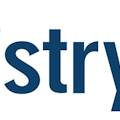Peer-reviewed article reports results from Anatabloc Supplementation Autoimmune Prevention clinical trial in patients with Hashimoto's thyroiditis
Nov. 1, 2013
4 min read
Star Scientific, Inc. (NASDAQ: STSI) and Rock Creek Pharmaceuticals, Inc., announce the publication of a peer-reviewed article reporting results from the company's ASAP (Anatabloc® Supplementation Autoimmune Prevention) clinical trial in patients with Hashimoto's thyroiditis. The article, titled, "Anatabine supplementation decreases thyroglobulin antibodies in patients with chronic lymphocytic autoimmune (Hashimoto's) thyroiditis: A randomized controlled clinical trial," was published Oct. 31, 2013, as a Brief Report in The Journal of Clinical Endocrinology & Metabolism (JCEM). JCEM is a publication of The Endocrine Society, and is described on their website as, "the world's leading peer-reviewed journal for clinical research and practice reviews in endocrinology."
The ASAP study was a three-month, IRB-approved, five-visit, double-blind, randomized, placebo-controlled, multisite study evaluating the impact of anatabine dietary supplementation in patients with Hashimoto's thyroiditis, one of the most common autoimmune diseases and a frequent cause of thyroid dysfunction. A total of 146 patients, 70 receiving anatabine and 76 placebo, completed the study at nine sites in the United States. Anatabine lozenges (9-24 mg per day based upon body weight) or placebo, each containing vitamins A and D3, were administered orally, three times a day for three months, with patients returning at four-week intervals for laboratory testing and/or ultrasonography of the thyroid.ADDITIONAL RELATED READING ...Though "calorie- free," sodas are not freeGluten WorriesTongue: Granular cell tumorBurning Mouth SyndromeOral cancer screening updateThe extraoral examStudy finds new iodine mouthwash may impact LDL cholesterol The primary outcomes tested whether dietary supplementation with anatabine ameliorates the immune system's targeting of the thyroid gland in cases of autoimmune thyroiditis. The results showed that anatabine reduced the patients' immune reaction against their own thyroid gland. Patients taking anatabine had a significantly greater reduction from baseline in serum thyroglobulin antibody levels compared to patients on placebo (p= 0.027). Similarly, more patients in the anatabine group had a greater than 20% drop in thyroglobulin antibodies than patients on placebo (p=0.023). Finally, the percentage of patients on anatabine with reductions in thyroglobulin antibodies of at least 25, 50, 75, or 100 WHO units was significantly greater than that of patients on placebo (all p < 0.05 at all cut-off levels). There were no significant changes or treatment group differences in serum thyroid function tests, thyroperoxidase antibody, inflammatory biomarkers, or ultrasonography measures. Overall, as the study concludes, the anatabine supplement was safe and well tolerated, although it was associated with more minor adverse events on initial dose adjustment. The most common MedDRA adverse events upon starting anatabine supplementation were mild dizziness (36%), nausea (8%), headaches (7%), and paresthesia (7%); most of the events were resolved with simple dose adjustment. Very few patients withdrew from the study due to adverse events (7 on anatabine and 1 on placebo). There were no significant abnormalities in clinical laboratory values attributed to anatabine, and no clinically significant effects of supplementation, either with anatabine or placebo, on vital sign measures. Curtis Wright, MD, MPH, medical director of Rock Creek Pharmaceuticals, commented, "The concept for this clinical trial originated after receiving reports from individuals that the addition of anatabine, a Solanaceous alkaloid, to their diet improved their thyroid inflammatory disease. The idea was supported by multiple recent epidemiological studies showing that exposure to Solanaceous alkaloids or other compounds from tobacco, had 'beneficial effects' in Hashimoto's thyroiditis. Finally, an experimental study in mice reported that anatabine ameliorates disease in a model of Hashimoto's thyroiditis. The results of the trial show that dietary supplementation with anatabine induces a statistically significant reduction in thyroid autoimmunity. We believe that continued supplementation (beyond the three months of this study) will show a progressive improvement in overall autoimmune responses." The "Early Release" manuscript is available here. For more information, visit Star Scientific's website.
About the Author
Sign up for our eNewsletters
Get the latest news and updates


